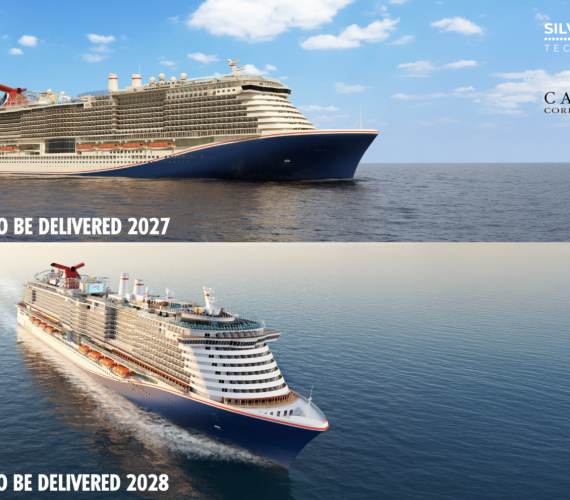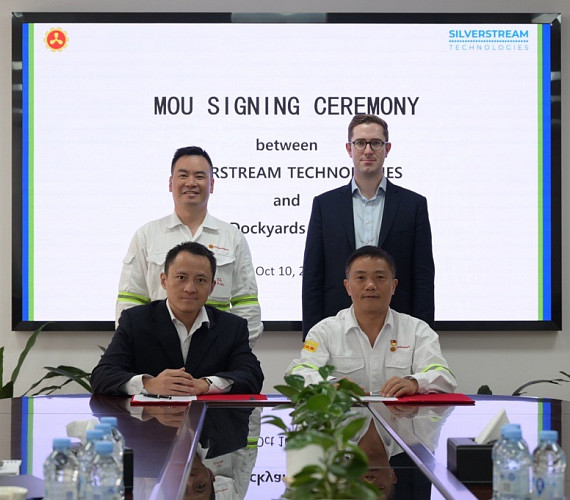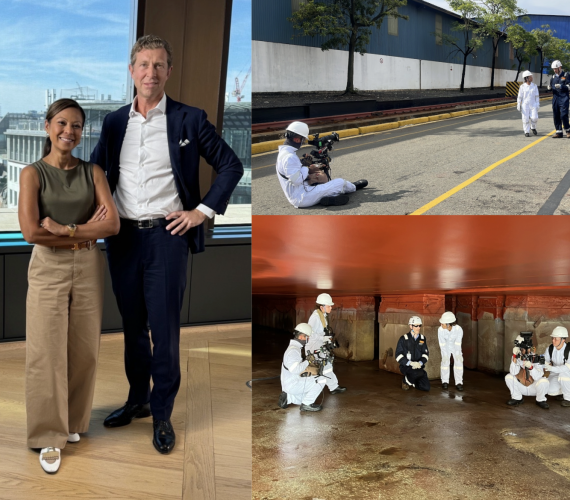“It has been an exciting period for Silverstream over the last 12-18 months because we have been able to expand very rapidly – the team, the technology, the orderbook – and now we have this massive order with MSC.”
The sentiment from our CEO and Founder Noah Silberschmidt, when speaking to European maritime trade publication Bunkerspot, was one of positivity and anticipation for the future.
Combining regulatory and market factors, coupled with the growing reputation of our proven propriety air lubrication technology, the Silverstream® System, has meant we’ve recently passed the 70-contract mark, including deals with major players such as Maersk, MSC, Shell, Carnival, Grimaldi, Vale and more.
With shipping’s environmental regulations set to grow more stringent in the wake of COP26, we believe our role in enabling ship owners and operators to profitably decarbonise will only increase.
During the interview, Noah pointed out that Silverstream is “expecting to have 500 installations by around 2025, so that means that we should really raise about 100 next year in new orders, and then in 2024/2025 go up to about 150 a year.”
Generally, Silverstream works with a variety of vessel types and at different stages of a ship’s lifespan. Speaking on the next few years, Noah said that our orders would stem from “a mixture of newbuilds and retrofits. We very much see that the only way that certain vessel types will be able to work in the future as they do today is if they employ energy efficiency technology like our system.”
It’s well understood that the shipping industry must find means in the near term to meet the IMO’s Energy Efficiency Operational Index (EEXI) and Carbon Intensity Indicator (CII), which will come into effect in 2023. With low and zero carbon fuels set to be under development for years to come, and with the reality that tactics such as slow steaming fail to address the underlying aim of improving design efficiency, enhancing vessel efficiency with fuel-agnostic, future-proof and effective technologies will become a commercial imperative.
Noah ended the interview by talking a little about the process we’ve taken to get to this point, including thoughts on how we’ve been able to develop our supply chain.
“All the equipment that goes on a vessel is from world-renowned equipment manufacturers. We work with Atlas Copco on our automation system, and we have a servicing and licensing agreement with Wärtsilä, which means that anywhere we are in the world we can use its technical network of service engineers, which numbers about 5,500 globally.”
“In everything we do, we are trying to create a very strong foundation. We work with other companies that are very strong brands so that together we always try to develop the best solutions – that is also why we work with DNV, Lloyd’s Register, RINA, Korean Register and ABS.”
It’s that strong foundation we are excited to continue to scale from as we work with more owners and operators to install our technology across the global fleet.



